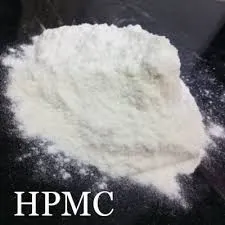
Dec . 06, 2024 06:49 Back to list
Applications and Benefits of Hydroxyethyl Cellulose in Various Industries
What is Hydroxyethyl Cellulose Used For?
Hydroxyethyl cellulose (HEC) is a water-soluble polymer derived from cellulose, the most abundant organic polymer on Earth. It is widely used across various industries due to its unique properties, including its ability to form gels, its thickening capabilities, and its excellent moisture retention. This versatility makes HEC valuable in a range of applications, from personal care products to construction materials. Let's explore some of the primary uses of hydroxyethyl cellulose.
Personal Care Products
One of the most common applications of hydroxyethyl cellulose is in the formulation of personal care products. It is frequently used as a thickening agent in shampoos, conditioners, lotions, and creams. HEC imparts a pleasant texture to these products, enhancing their spreadability and consistency. Additionally, its ability to retain moisture makes it an essential ingredient in skincare formulations, providing hydration and improving the overall feel of the product on the skin.
In the realm of cosmetics, HEC is also utilized in products like makeup removers and facial masks. Its film-forming properties help create a smooth application and contribute to the product’s effectiveness. Due to its non-toxic nature and compatibility with various skin types, hydroxyethyl cellulose is a favored choice among formulators seeking safe and effective ingredients.
Pharmaceutical Applications
In the pharmaceutical industry, hydroxyethyl cellulose serves multiple purposes. It is often used as an excipient, which is a substance that serves as a vehicle for the active ingredients in medications. HEC can enhance the stability and bioavailability of certain drugs, ensuring that they are released effectively in the body.
Moreover, hydroxyethyl cellulose is utilized in the formulation of topical ointments and gels
. Its thickening and gel-forming properties provide a smooth and stable base that can enhance the delivery of active pharmaceutical ingredients. The ability of HEC to create a barrier on the skin also aids in protecting wounds and facilitating faster healing processes.what is hydroxyethyl cellulose used for

Construction Industry
The construction industry has also found valuable uses for hydroxyethyl cellulose. It is often incorporated into various building materials such as mortars, plasters, and paints. HEC functions as a thickener, enhancing the workability and flow of these materials, making them easier to apply.
In addition to improving the application process, HEC helps in retaining water, allowing for better adhesion and reduced cracking during the drying phase. This property is particularly beneficial in areas facing harsh environmental conditions, thereby extending the longevity and durability of the construction materials.
Food Industry
In the food industry, hydroxyethyl cellulose acts as a thickening agent and stabilizer in various food products. Its ability to retain moisture helps improve the texture and mouthfeel of processed foods, making it a commonly used ingredient in sauces, dressings, and dairy products. HEC can also assist in emulsifying ingredients, maintaining uniformity and preventing separation.
While it is often regarded as a safe food additive, its use is subject to regulations that vary by country. Nevertheless, it remains popular for its functional and beneficial properties in food formulations.
Conclusion
In conclusion, hydroxyethyl cellulose is an incredibly versatile ingredient with a wide range of applications spanning various industries. Its unique properties—such as thickening, emulsifying, and moisture-retaining capabilities—make it a valuable component in personal care products, pharmaceuticals, construction materials, and food formulations. As industries continue to innovate and develop new products, the importance of HEC is likely to grow further. As a non-toxic, biodegradable, and adaptable substance, hydroxyethyl cellulose is a prime example of how natural materials can be harnessed to create effective solutions across numerous sectors, promoting sustainability and functionality.
-
Versatile Hpmc Uses in Different Industries
NewsJun.19,2025
-
Redispersible Powder's Role in Enhancing Durability of Construction Products
NewsJun.19,2025
-
Hydroxyethyl Cellulose Applications Driving Green Industrial Processes
NewsJun.19,2025
-
Exploring Different Redispersible Polymer Powder
NewsJun.19,2025
-
Choosing the Right Mortar Bonding Agent
NewsJun.19,2025
-
Applications and Significance of China Hpmc in Modern Industries
NewsJun.19,2025







